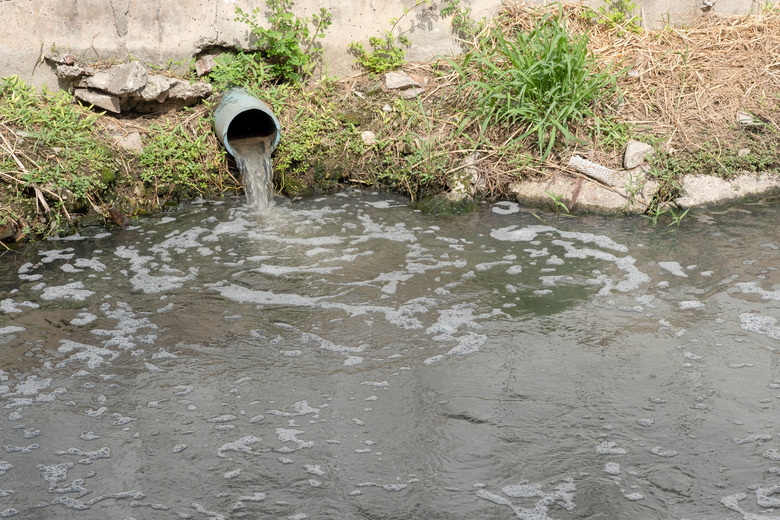What Is River Runoff?
River runoff refers to all water that comes into a river water system from sources such as rainfall, snowmelt and groundwater. Runoff includes water flowing over the land into the water system, water that sinks into the soil to join the water system, as well as water that flows from the river to a larger body of water, such as a sea or ocean.
Regions
Regions
River runoff feeds into rivers, which then feed into seas. Runoff for different continents can be calculated, with tropical regions, such as the Amazon and the Congo-Zaire basin, producing more runoff than nontropical regions. Three factors influence the volume of river runoff: location, precipitation and evaporation.
Urban Runoff
Urban Runoff
When rain falls on unpaved earth it soaks into the ground, replenishing the aquifer (groundwater repository). In urban areas, when rain falls on paved ground, it does not soak into the ground but rushes over the paved surface to a stream or river. This process is called "urban runoff."
Changing Conditions
Changing Conditions
Urban runoff often contains more pollutants than natural runoff. It also feeds into the water system more quickly, bringing polluted water first into smaller bodies of water, like rivers, then into oceans and seas. Increases in urban runoff and decreases in natural river runoff reflect the increase of developing countries in the world, and the growing impact of mass urbanization.
Cite This Article
MLA
Pace, Elizabeth. "What Is River Runoff?" sciencing.com, https://www.sciencing.com/what-is-river-runoff-12387520/. 22 November 2019.
APA
Pace, Elizabeth. (2019, November 22). What Is River Runoff?. sciencing.com. Retrieved from https://www.sciencing.com/what-is-river-runoff-12387520/
Chicago
Pace, Elizabeth. What Is River Runoff? last modified March 24, 2022. https://www.sciencing.com/what-is-river-runoff-12387520/
